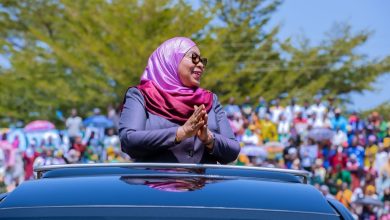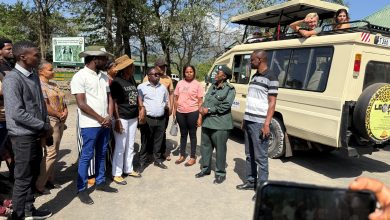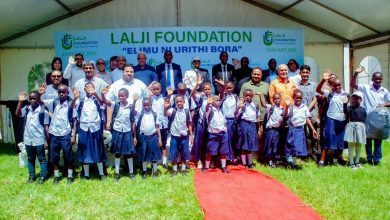Analysts defend Tanzania sovereignty

DAR ES SALAAM: ANALYSTS and academicians have slammed foreign activists and leaders for issuing statements that interfere with Tanzania’s internal affairs and sovereignty, insisting that every country in an ever-evolving democratic landscape experiences its own ups and downs.
Their remarks follow a recent wave of foreign statements accusing Tanzania of violating human rights through alleged abductions and forced disappearances, despite the fact that investigations into such matters are ongoing through the country’s security organs and judicial system.
Speaking to the ‘Daily News’ yesterday, political analyst Mr Yonah Mapury from Mwanza urged foreign activists to refrain from meddling in Tanzania’s sovereignty, saying the country, as a free and independent nation, is fully capable of addressing its own emerging challenges whether similar or different from those faced by other nations.
He insisted that globally, every nation’s sovereignty is guided by its own domestic laws and culture, adding that there is no single model of democracy that fits all countries.
“Foreign activists should refrain from attempting to influence Tanzania’s domestic affairs based on the laws and cultures of their own nations,” Mr Mapury said.
However, he clarified that the principle of noninterference does not imply censorship of freedom of expression or disregard for multilateral cooperation.
Mr Mapury further noted that Tanzania continues to uphold peace, unity, human rights and democratic governance, building on the firm foundation laid by the Father of the Nation, the late Mwalimu Julius Nyerere.
“Tanzania remains one of the most peaceful countries in the East African region, with citizens who value brotherhood and mutual respect. The country continues to welcome investors from all corners of the world,” he said.
Commenting on reports of abductions, Mr Mapury described the issue as one of the key challenges of the time, noting that President Samia Suluhu Hassan has repeatedly condemned such acts through various platforms, including public rallies and has directed thorough investigations to bring the culprits to justice.
“Mwalimu Nyerere built a nation founded on peace and love and that spirit continues to guide us today,” Mr Mapury said.
A political analyst and a lecturer at the Mwalimu Nyerere Memorial Academy in Dar es Salaam, Dr Ahmad Sovu, said that under international law, nations may offer advice and share experiences, but they are not permitted to impose their own systems or values on others.
“Tanzania is a sovereign state. It is astonishing to see outsiders attempting to dictate how we should manage our own affairs. It is like a wealthy neighbour telling you how to sleep in your own home that is simply not their place,” he said. “There is a clear difference between advising and commanding. True partnership must always respect autonomy.”
Dr Sovu further said that Western countries often choose to comment selectively on specific issues while overlooking the genuine development challenges faced by African nations, such as inadequate infrastructure, limited education facilities and restricted access to modern technology.
“If they truly care, they should support our development priorities instead of lecturing us on democracy whenever it suits their agenda. Their selective criticism only divides citizens, fuels unnecessary tension, and risks destabilising peaceful societies,” he stressed.
He commended Tanzania’s leadership for maintaining a firm stance on national independence and ensuring that governance and democratic reforms are domestically driven.
“President Dr Samia Suluhu Hassan has made it clear that Tanzania is a confident, self-reliant nation, fully capable of managing its own affairs,” Dr Sovu emphasised.
He stressed that genuine international cooperation must be grounded in mutual respect and consent, rather than external pressure disguised as moral concern.
Meanwhile, Lecturer at Georgetown University’s Faculty of African Studies, USA, Dr Gwandumi Benjamin echoed similar sentiments saying Tanzania like any sovereign democracy has functioning legal and judicial systems.
“Its courts, prosecutors and law enforcement agencies operate within a constitutional framework, accountable to the law and the citizens they serve. Ongoing cases, whether involving politicians, diplomats, or activists, are matters for Tanzanian institutions,” Dr Benjamin said.
“To suggest otherwise undermines the very independence that other countries claim to uphold. This is not to say Tanzania is above criticism no democracy is but the right to critique, reform and correct must primarily belong to Tanzanians,” he added.
For his part, seasoned international politics analyst based at Saint Augustine University of Tanzania (SAUT), Dr Isaac Safari based at the stressed the importance of the government of Tanzania to continue fulfilling international instruments encompassing the Universal Declaration of Human Right agreed upon by other regional and global bodies which advocate for among others the right to life.
Political analyst Mr Hamiduni Maliseli described western narratives as “neocolonial tendencies” by some western organisations and governments that frequently issue reports and statements condemning African countries under the guise of promoting democracy and human rights.
He said recent statements from international organisations such as Human Rights Watch targeting Tanzania reflect a pattern of Western paternalism that seeks to undermine Africa’s sovereignty and independence of thought.
“What we are seeing today is a new face of colonialism. They use democracy and human rights as convenient tools of influence. Behind the fine words lies an attempt to control how African nations govern themselves,” he said.
He argued that while the organisations claim to champion human rights, their evaluations are often biased and rooted in Western definitions of democracy and governance standards that disregard Africa’s diverse histories, cultures and political realities.
“They judge Africa through Western eyes. They want Tanzania’s democracy to look like that of the US or France. When we take a unique approach that fits our values and context, they call it a violation,” he said.
He further warned that Africa’s dependence on global financial institutions like the IMF and World Bank has given Western powers undue leverage to influence domestic policies, sometimes under the pretext of promoting transparency and reform.
“They want Africa to remain submissive economically, politically and intellectually. As long as we depend on their loans, their approval and their institutions, we will never truly be free,” he said.






This is not Tanzania we used to know. Yes, Julius Nyerere build the country on the basis of peace and love. But those principles are fast disappearing. The level of poverty is very high, cost of living is unbearable, the gap between the haves and have not is widening. Cases of abductions have not been properly addressed. People are suspicious of each other and no one seems to have the guts to tackle such problems. Tanzanians and especially your leaders should examine the root cause of the challenges they are facing and work out a strategy to solve them. Avoidance of real issues will not be helpful. People want to put food on the table, quality education for their children, good healthcare and freedom to live in their country happily without fear of being abducted or killed.